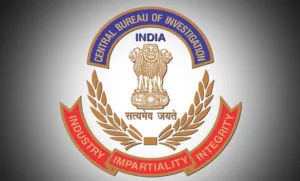Bank Loses ₹ 4.5 Crore in Sophisticated Online Transaction Failure Fraud

Representational pic
In a sophisticated online fraud scheme, cybercrime police in Mumbai have apprehended three individuals, including a BTech (IT) graduate, for their alleged involvement in causing a loss of nearly Rs 4.5 crore to a private bank. The scam, orchestrated with the assistance of a hacker believed to be from Turkey, involved international merchants, fraudulent credit card refunds, and deceptive documentation, ultimately prompting police intervention.
According to authorities, the hacker masqueraded as an international merchant and initiated requests to the bank for refunds on failed transactions purportedly on behalf of credit card holders. To bolster the fraudulent claims, counterfeit purchase reversal documents were submitted, convincing the bank to transfer approximately Rs 4.5 crore to 34 credit card holders between June and December 2023. However, when the bank realized that the credited amounts were not reconciled, its vice-president lodged a police complaint in January, resulting in the registration of an FIR for cheating and impersonation.
The bank’s complaint detailed how the ‘international merchants’ contacted them, alleging numerous transaction failures on behalf of their clients. Under the guise of rectifying the issue, the merchants requested refunds to be credited to certain customers’ credit cards, assuring the bank of subsequent repayment. Falling for the facade, the bank refunded the specified amounts to 34 individuals whose details were provided by the merchants. However, subsequent attempts to recover the credited sums from the merchants proved futile, prompting the filing of an FIR.
Upon tracing the money trail, investigators discovered that the bank had credited Rs 76 lakh to Muzammil Warsi, a resident of Andheri who owns a film editing firm. Warsi, one of the beneficiaries, transferred Rs 45 lakh to Ramkumar Yadav, a 29-year-old BTech (IT) graduate operating an electronic accessories store in Ghaziabad. Yadav, in turn, retained a portion as commission and converted the remaining funds into cryptocurrency, which he then transmitted to the hacker.
The apprehension of these individuals sheds light on the intricate nature of modern cybercrime, underscoring the importance of heightened vigilance and robust cybersecurity measures in safeguarding against such fraudulent activities.









